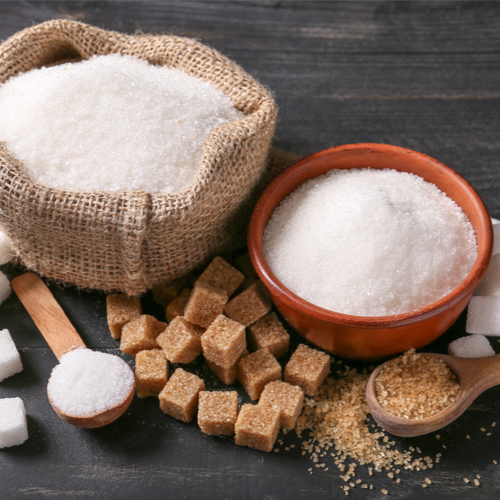This is an archived article and the information in the story may be outdated. Please check the time stamp on the story to see when it was updated last.
As unfortunate as it may be, bloating is one of the most common digestive issues to struggle with, and even if it’s not chronic you’ve likely had a day or two where you’ve been doubled over with an inflamed stomach and no clue as to the cause. Bloating can stem from a number of sources: chronic illness, hormones, gas retention, but one of the most likely causes of bloat is actually food intolerance.
Certain food items, while delicious, contain ingredients which have been known to irritate the lining of your digestive tract, leading to inflammation. Additionally, if you suffer from food intolerances your body may hold onto gas, creating the bloated appearance we all dread. In order to reduce the risk of future stomach inflammation, it’s important to be aware of the foods that may be causing them.


Dairy
One of the most common causes of bloating and inflammation is lactose intolerance, so dairy may be the root of the issue when it comes to your stomach discomfort--cow’s milk in particular. “Cow's milk tends to stimulate the production of mucus, and if you suffer from a condition like ulcerative colitis or Crohn's disease (or even a runny nose), this can make it worse,” warns nutritionistHeather Hanks. “I would omit dairy from your diet if you suffer from bloating as well. This includes cheese, cow's milk, butter, and yogurt.” It’s a big ask to remove all dairy products from your diet, but fortunately there are a variety of alternative products on the market which taste similar without the digestive issues. Nut milk variations and even plant-based butter can be great additions to your diet to cut down on dairy intake over time.

Gluten
Gluten is another food group which commonly brings about digestive discomfort and intolerance. “Gluten is also highly inflammatory for many people. You may notice that you feel bloated, constipated, and get brain fog or want to take a nap after eating gluten,” says Hanks. “But be careful when eating gluten-free products as many contain grains, sugar, and other ingredients that also induce inflammation in an attempt to mimic the texture of gluten, which is not easily done.” Instead of gluten based products, Hanks suggests turning to breads and other items which are baked with almond and coconut flour, as they are more easily digested.

Refined Sugar
Sugar has been known to irritate the stomach, leading to digestive issues which may include bloating and discomfort. Particularly if you’re working on losing weight it may be worthwhile to cut down on your sugar intake, from both a caloric standpoint and so you can feel your best in your body. “Foods that contain refined sugar (soda, candy, baked goods, ice cream, sweets, etc.) are notorious for causing inflammation. Additionally, these foods contain empty calories that lead to weight problems and blood sugar fluctuations,” warns Hanks. Instead of using sugar to sweeten your coffee or tea, try using honey or switching to more natural sweeteners that won’t upset your stomach and spark inflammation.

Beans & Legumes
Beans and legumes, while great sources of plant based protein, can cause profound inflammation in the stomach. “These contain compounds called anti-nutrients that bind to your digestive lining and induce inflammation, preventing you from absorbing certain nutrients, especially minerals,” explains Hanks. If you suffer from IBS or IBD it may be worth eliminating beans from your diet in favor of another protein source, but Hanks also notes that soaking your beans and legumes in water overnight may help with the ease of digestion.


























